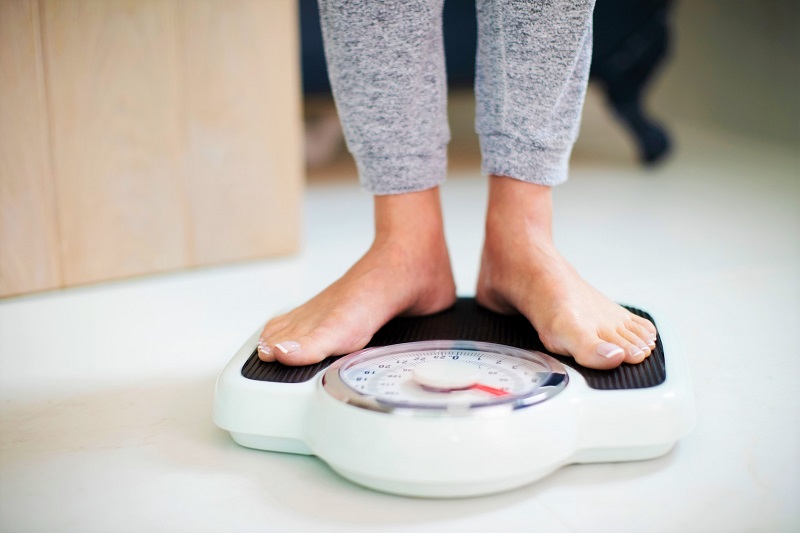Metabolism and Weight Loss: What You Need to Know
Article posted in: Diet & Nutrition
We’ve all got a friend who can eat what they want and never gain weight. They pile on the extra fries, glob on more dressing and go for a second helping without putting on a pound. If you’ve ever struggled with your weight loss journey, you’ve probably wished that you could boost your metabolism and be like that!
Here’s the hard truth: Most of those “eat anything” friends don’t have a magical, hyper-fast metabolism that keeps them so trim. About 96 percent of us fall into a “normal” range for natural metabolism. Our weight gain is influenced much more by how much we eat and exercise.
But that doesn’t mean your metabolism isn’t important—quite the opposite, in fact! Your personal metabolic factors are crucial for figuring out the right calories and foods for your weight loss goals. That’s why the personalized meal plans from Nutrisystem take your personal metabolism into account to create a diet that is unique and tailored to YOU.
So…what exactly is metabolism?

Let’s start with the basics: According to Merriam-Webster, your metabolism is all the processes by which your body converts the calories you eat and drink into energy—basically, it’s how your body burns calories so you can breathe, circulate blood, zing hormones around your body, sneeze, jump, run and even sleep. Your metabolic rate is a measurement of how many calories you burn for all of these functions.
The metabolic rate for the basic functions of our bodies—the amount of calories you’d need if you stayed in bed all day—is called your basal metabolic rate (BMR). This is probably what you think of when you imagine your friend who has a hyper-fast metabolism. “Basal metabolic rate (BMR) is often used interchangeably with resting metabolic rate (RMR). While BMR is a minimum number of calories required for basic functions at rest, RMR — also called resting energy expenditure (REE) — is the number of calories that your body burns while it’s at rest,” explains Healthline.
But the truth is, most of us have a pretty average basal metabolic rate—96 percent of people fall within a 10 to 16 percent range of the average BMR, says Current Opinion in Clinical Nutrition & Metabolic Care. 16 percent sounds like a lot. However, if an average BMR is 1,800 calories burned, a “hyper-fast” person at 16 percent over is burning only an extra 288 calories per day—less than a cheeseburger at a popular fast food restaurant.
The other pieces of the metabolism puzzle include factors that you may know and in some cases, can control. Knowing what these factors are can help you know the number of calories your body needs each day, the types of foods your body responds to and how much you should eat to lose weight efficiently.
OK, what are the other factors?

First, your age. You may have heard that your metabolism starts a downward spiral at age 30. That’s not exactly true: While most people do see their metabolism start slowing down around this time, it’s usually because they’re losing muscle mass. “Age-related muscle loss, called sarcopenia, is a natural part of aging,” says Harvard Health Publishing. After age 30, people can lose three to five percent of their muscle mass for every decade of life. Less lean muscle means fewer calories burned.
Your metabolism does start to slow down later in life, though. This is typically due to hormonal changes. Hormones are the chemical messengers of the body. They are made in one location in the body, then sent to “target organs and systems” to perform a function. “As we age, changes naturally occur in the way body systems are controlled,” says Medline Plus. Women experience a drop in estrogen levels during menopause, while men often have a gradual decrease in testosterone levels with age.
Speaking of which, gender matters, too: Even when differences in weight and body composition are factored in, women burn five to 10 percent fewer calories when sedentary than men, according to research, published in The Journal of Clinical Investigation.
While you can’t control your gender or your age, there are factors in your metabolic rate that you can control to boost your metabolism. The amount you sleep can affect how your body processes calories. Your hydration levels also matter: According to Medical News Today, research shows that drinking water can boost resting metabolism, burn calories and lead to weight loss.
The amount you exercise determines not only how many calories you burn, but also your muscle mass. Lean muscle requires more energy (even at rest) than fat does. The ratio of fat-to-muscle in your body also means that your body type can impact your metabolism and weight loss: If you’re naturally pear-shaped, you may process carbs and fat differently from someone who naturally has an apple-shaped body.
How can Nutrisystem help?

Many of these metabolic factors help determine your total daily energy expenditure (TDEE). It’s a measure of how many calories you burn each day based on your RMR and activity level. Therefore, your age, gender, height and weight are all considered. The personalized meal plans from Nutrisystem take your TDEE into account—your personalized metabolism—to determine the right amount of food that you should eat each day to lose weight.
Since your TDEE and metabolism adapts and changes as you lose weight, many dieters find that their diet is “less effective” over time. In reality, they haven’t adjusted their eating! They’re still eating for their starting TDEE. In addition to weight, exercise and activity level can also change and must be accounted for.
With Nutrisystem, you get access to our app. This smart weight loss tool fixes this for you automatically, so you can keep shedding pounds and progressing along your weight loss journey at an inspiring pace. The Nutrisystem app will monitor your TDEE as you lose weight, adjusting your caloric needs throughout your journey. It’s a diet that adapts to YOU!
Providing information on your height, weight, age, gender, and your activity level gives your Nutrisystem program personalized power based on your unique metabolism. It all adds up to one thing: You reaching your weight loss goals according to your body’s needs. Your friends, coworkers and loved ones will see the difference—and might even think you have a “fast metabolism” now. You’ll know better: You have your metabolism and you know how to make it work… for you!
Want a personalized weight loss plan designed for your metabolism? Get started with Nutrisystem today!










